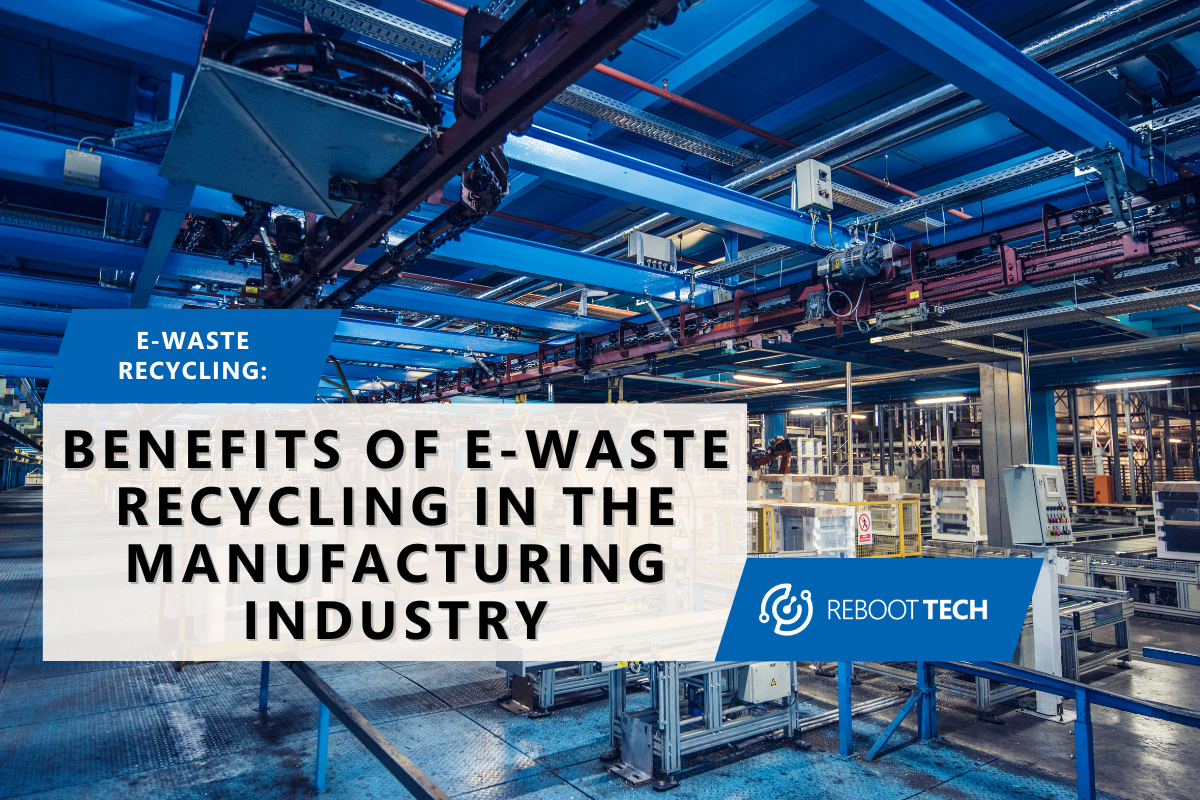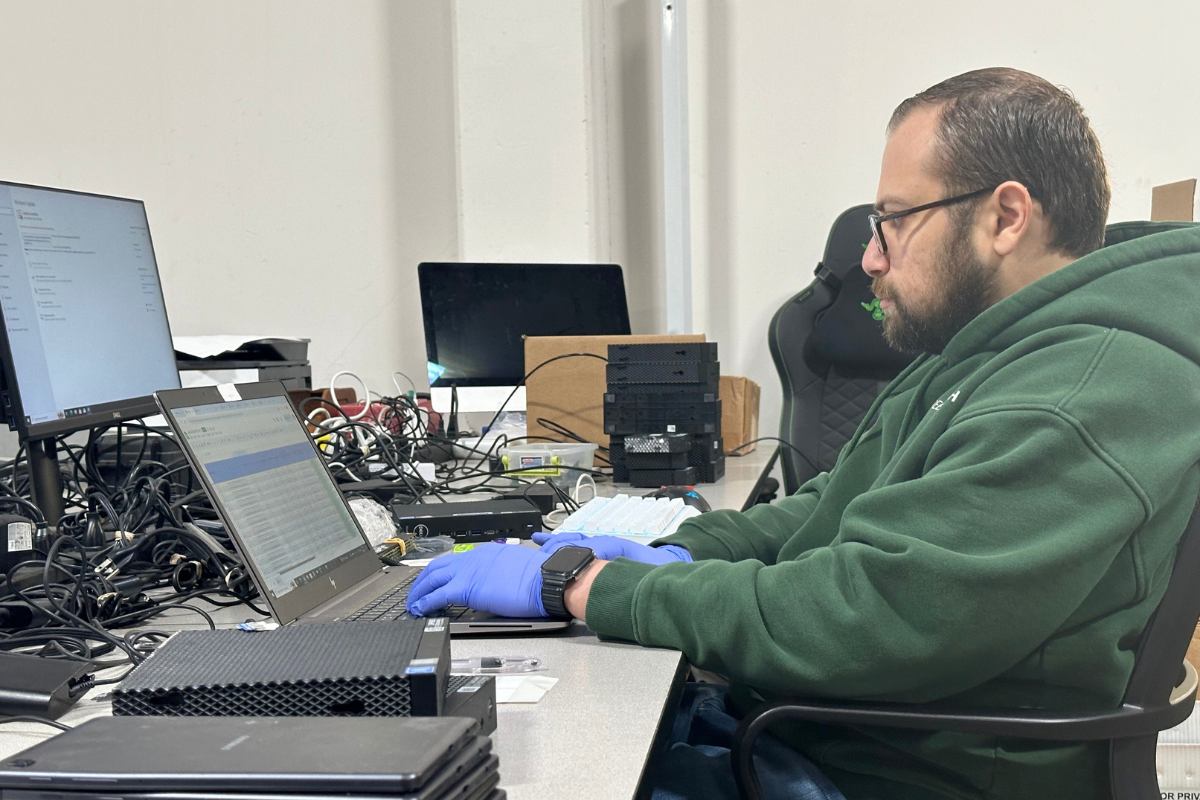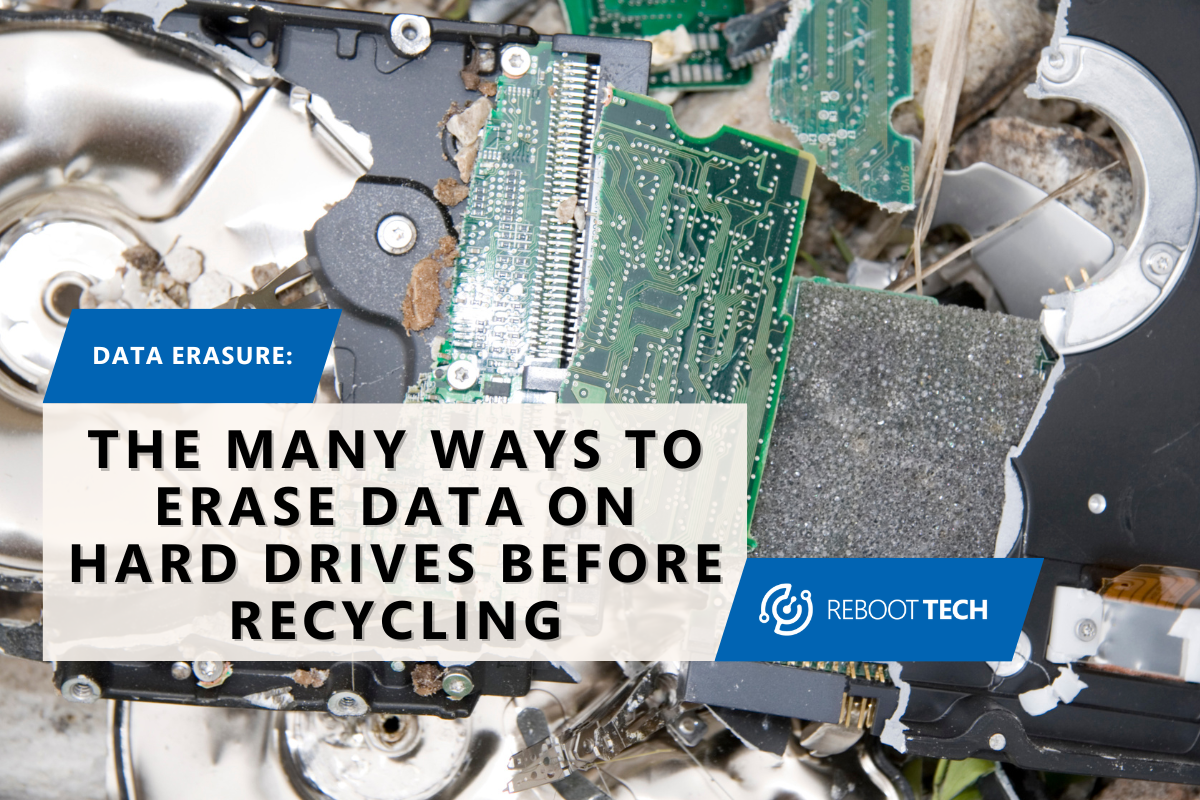
The Impact of E-Waste Recycling on the Manufacturing Industry
In today’s fast-paced world, the manufacturing industry is driving innovation. However, with this progress comes a significant challenge: managing the growing amount of electronic waste, or e-waste.
Each year, millions of tons of e-waste are generated worldwide, and the manufacturing sector plays a big part. What happens to old machines, defective products, or excess electronic components? Unfortunately, many of these items end up in landfills, leading to serious environmental and health issues.
But what if there was a better way? Imagine a world where the waste threatening our planet could be repurposed, reused, or recycled into new products. This is where e-waste recycling comes in. It’s more than just being eco-friendly—it’s a smart business strategy that can save money, recover valuable materials, and positively impact both society and the environment.
In this blog, we’ll discuss why e-waste recycling is so important in the manufacturing industry. We’ll look at how common e-waste is in manufacturing, the environmental and social benefits of recycling, and how electronics manufacturers can refurbish, repurpose, and recover precious metals from their waste. By the end, you’ll see why e-waste recycling isn’t just a nice option—it’s a must for any business that wants to stay ahead.
Prevalence of E-Waste in Manufacturing
E-waste has become a big issue in the manufacturing industry. As companies keep pushing for more advanced and efficient technology, older equipment quickly becomes outdated. Manufacturing relies heavily on electronics, from complex machinery to simple circuit boards. When these items can no longer be used or are replaced by newer models, they often add to the growing e-waste problem.
In 2023 alone, global e-waste was estimated to be around 54 million metric tons, with a large portion coming from the manufacturing sector. This waste includes not just large machines and equipment, but also smaller items like semiconductors and sensors that are essential in manufacturing processes. Without proper disposal, these discarded electronics pose a serious risk to the environment and public health.

Environmental and Social Benefits of E-Waste Recycling
E-waste recycling in manufacturing offers significant environmental and social benefits. First, recycling reduces the amount of waste ending up in landfills. By keeping e-waste out of landfills, manufacturers can prevent harmful toxins from being released into the environment. This helps protect the ecosystem and reduces the carbon footprint linked to making new materials from scratch.
Recycling e-waste also helps save natural resources. Many electronic devices contain valuable materials like gold, silver, and copper, which can be recovered and reused. By getting these materials from old electronics, manufacturers reduce the need for mining, which often harms the environment and causes social issues. In this way, e-waste recycling promotes the sustainable use of natural resources and supports the move towards a more circular economy.

On a social level, e-waste recycling can create jobs and boost the economy. The recycling industry needs skilled workers to dismantle, sort, and process electronic waste. As demand for recycled materials grows, so does the need for workers who can handle e-waste efficiently and safely. This can lead to job creation, especially in areas with high unemployment.
E-Waste Recycling Within the Manufacturing Industry
E-waste recycling doesn’t just benefit the environment and society—it also offers clear advantages for electronics manufacturers. By adopting recycling practices, manufacturers can boost their sustainability efforts, cut costs, and improve their brand image. Here’s how refurbishing, repurposing, and recovering precious metals through e-waste recycling can benefit electronics manufacturers.
Refurbishing
One of the best ways electronics manufacturers can benefit from e-waste recycling is through refurbishing. Refurbishing means taking outdated or damaged electronics and restoring them to a working condition. This not only extends the life of electronic products but also allows manufacturers to reclaim some of the value that would otherwise be lost.

For example, instead of discarding defective products, manufacturers can repair and refurbish them, making them suitable for resale or reuse. This approach can lead to significant cost savings since refurbishing is often cheaper than producing new products. Additionally, offering refurbished products allows manufacturers to reach a market segment that values sustainability and affordability. By promoting refurbished products, manufacturers can set themselves apart from competitors and attract environmentally conscious consumers.
Repurposing
Another way electronics manufacturers can benefit from e-waste recycling is through repurposing. Repurposing involves taking components or materials from old electronics and using them in new products or applications. This not only reduces waste but also allows manufacturers to tap into the value of materials that would otherwise go to waste.
For instance, components from old machinery or electronics can be repurposed for use in new products, reducing the need for new materials and lowering production costs. This approach is especially useful in industries where certain materials are scarce or expensive. By repurposing materials, manufacturers can make better use of their resources and increase efficiency.
Recovering Precious Metals
One of the most profitable aspects of e-waste recycling for electronics manufacturers is the recovery of precious metals. Electronic devices contain small amounts of precious metals like gold, silver, and palladium, which are used in various components like circuit boards and connectors. While these metals are present in small quantities, they are highly valuable and can be recovered through specialized recycling processes.

Recovering precious metals from e-waste offers several benefits for manufacturers. First, it reduces the need for mining, which often has significant environmental and social impacts. By recovering metals from old electronics, manufacturers can decrease their reliance on newly mined materials and lower their carbon footprint.
The Overall Benefits of E-Waste Recycling
E-waste recycling isn’t just an environmentally responsible practice—it’s a smart strategy for the manufacturing industry. By embracing recycling, manufacturers can reduce their environmental impact, conserve natural resources, and support sustainable economic growth.
In conclusion, the importance of e-waste recycling in the manufacturing industry cannot be overstated. As the industry continues to grow and innovate, the need for responsible waste management practices becomes more critical. By integrating e-waste recycling into their operations, manufacturers can turn a potential problem into an opportunity for growth, sustainability, and long-term success.



